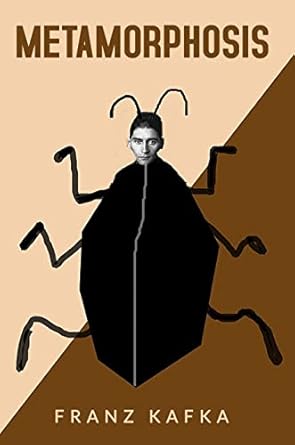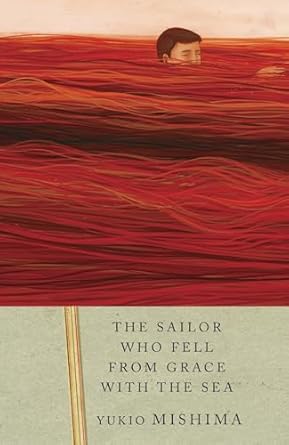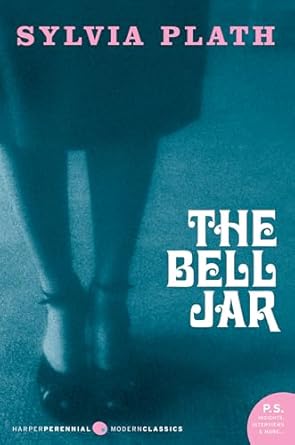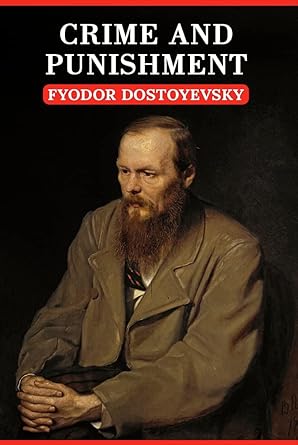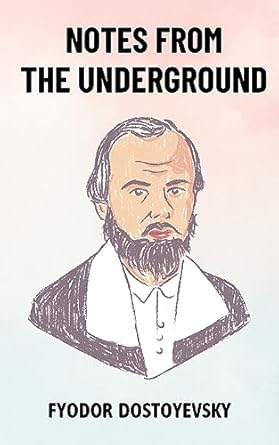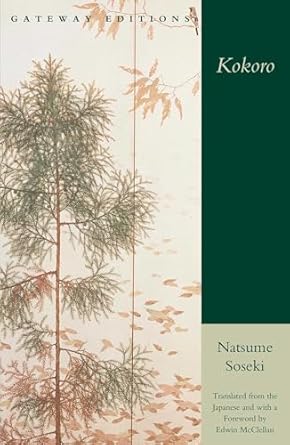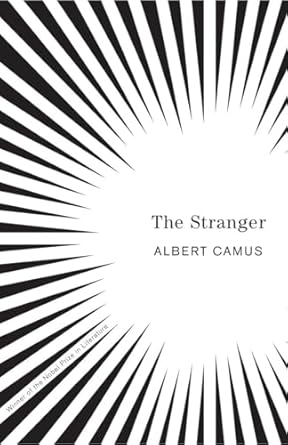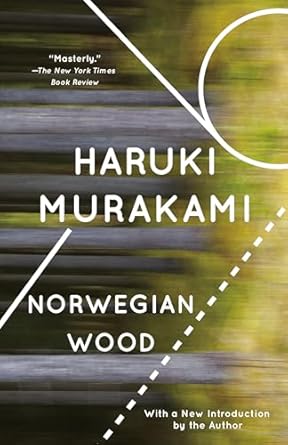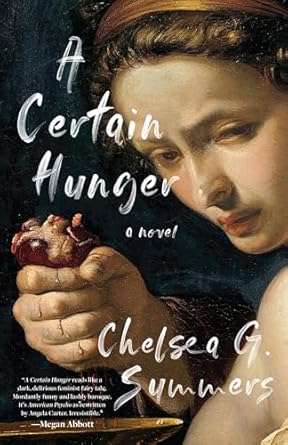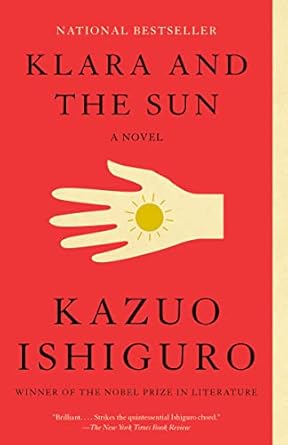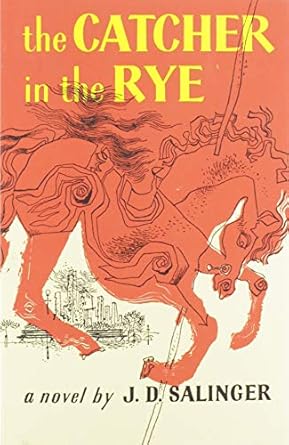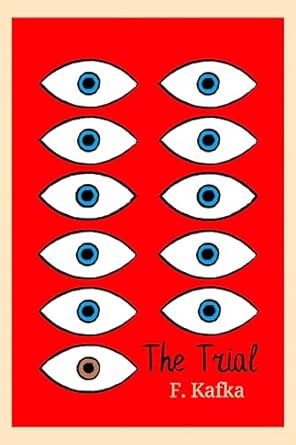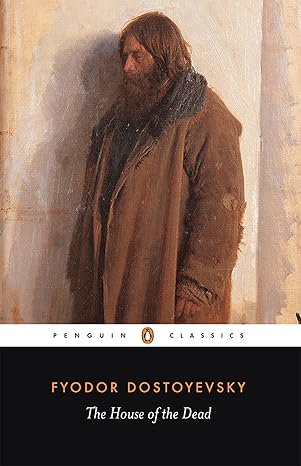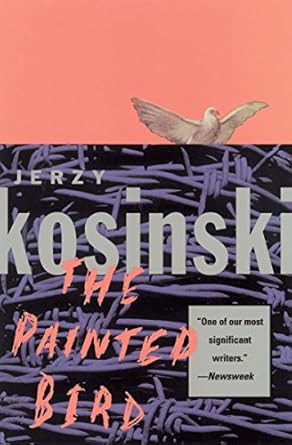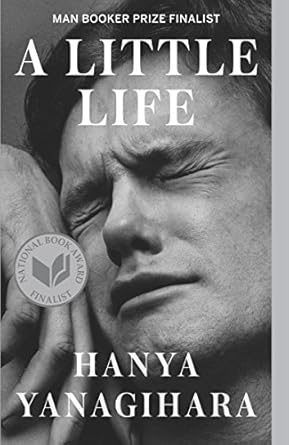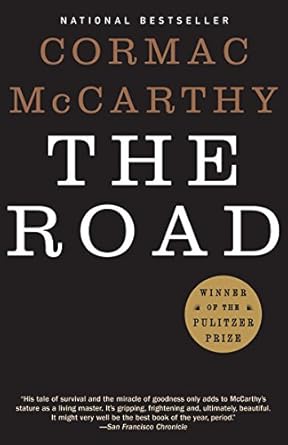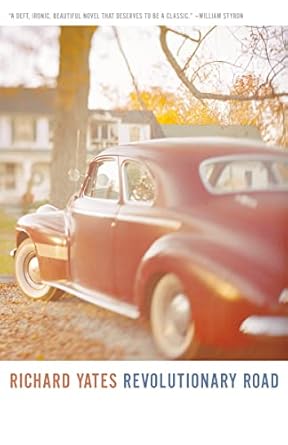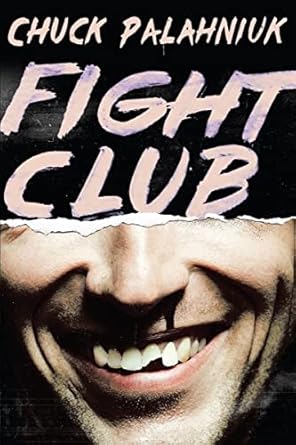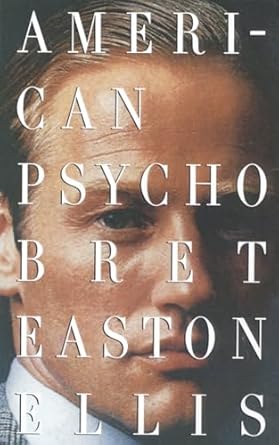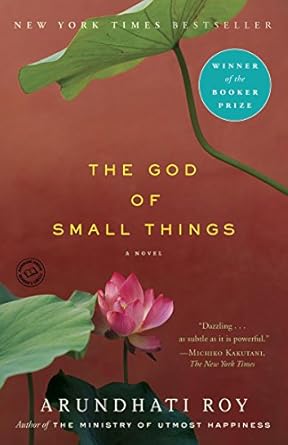Summary: In today's article, I have selected 20 of the best books similar to No Longer Human that will challenge your perception of self and society. Here are my top 3 favorites:
- The Metamorphosis by Franz Kafka
- The Sailor Who Fell from Grace with the Sea by Yukio Mishima
- The Bell Jar by Sylvia Plath
Books like No Longer Human by Osamu Dazai dive deep into the messy, complex side of being human—touching on feelings of alienation, isolation, and the struggle to find one’s place in the world. They often tackle dark, introspective themes like despair and identity, allowing readers to connect with raw, unfiltered emotions. These books make you think about life in a different way, pushing you to reflect on your own experiences and mental health. If you're interested in exploring the deeper, more difficult parts of existence, they offer a powerful and thought-provoking journey.
TOP 20: Best Books Similar to No Longer Human
- The Metamorphosis by Franz Kafka
- The Sailor Who Fell from Grace with the Sea by Yukio Mishima
- The Bell Jar by Sylvia Plath
- Crime and Punishment by Fyodor Dostoevsky
- Notes from Underground by Fyodor Dostoevsky
- Kokoro by Natsume Sōseki
- The Stranger by Albert Camus
- Norwegian Wood by Haruki Murakami
- A Certain Hunger by Chelsea G. Summers
- Klara and the Sun by Kazuo Ishiguro
- The Catcher in the Rye by J.D. Salinger
- The Trial by Franz Kafka
- The House of the Dead by Fyodor Dostoevsky
- The Painted Bird by Jerzy Kosinski
- A Little Life by Hanya Yanagihara
- The Road by Cormac McCarthy
- Revolutionary Road by Richard Yates
- Fight Club by Chuck Palahniuk
- American Psycho by Bret Easton Ellis
- The God of Small Things by Arundhati Roy
1. The Metamorphosis
- Author: Franz Kafka
- About: The story of Gregor Samsa, who wakes up to find himself transformed into a giant insect, exploring themes of alienation and the absurdity of life.
- Style of writing: Surreal, symbolic, and existential. Kafka's writing is known for its eerie and disorienting tone.
- Length: Approx. 21,000 words
- Year written: 1912
- Emotional impact: It leaves a lasting impression of deep alienation and absurdity, challenging one’s perception of identity and the human condition.
- Difficulty level: Moderate – its surreal nature can be confusing, but its themes are accessible.
- Why read it: To explore existential questions and the harsh realities of isolation and self-worth.
2. The Sailor Who Fell from Grace with the Sea
- Author: Yukio Mishima
- About: The story revolves around a young boy who, after witnessing the downfall of an admired sailor, experiences intense disillusionment and conflict.
- Style of writing: Lyrical and dark, often mixing beauty with brutality in his prose.
- Length: Approx. 39,000 words
- Year written: 1963
- Emotional impact: The book offers a mix of intellectual and emotional challenges, deeply affecting readers with its portrayal of youthful rebellion and existential crisis.
- Difficulty level: Moderate – the themes can be intense, and Mishima's writing style requires a thoughtful reading.
- Why read it: For its exploration of youth, ideals, and the clash between personal desires and societal expectations.
3. The Bell Jar
- Author: Sylvia Plath
- About: The semi-autobiographical novel about Esther Greenwood, a young woman who struggles with mental illness and her place in a society that offers little understanding.
- Style of writing: Introspective, poetic, and confessional.
- Length: Approx. 73,000 words
- Year written: 1963
- Emotional impact: A deeply emotional and often unsettling portrayal of depression, leaving a powerful impact on readers.
- Difficulty level: Moderate – the subject matter is heavy, but Plath's writing is clear and personal.
- Why read it: For its raw exploration of mental health and the pressures of societal expectations on women.
4. Crime and Punishment
- Author: Fyodor Dostoevsky
- About: A psychological novel focusing on Raskolnikov, a young man who commits a crime and struggles with guilt and moral dilemmas.
- Style of writing: Deeply philosophical and psychological, with complex dialogues and insights into the human condition.
- Length: Approx. 211,000 words
- Year written: 1866
- Emotional impact: Intense, with a lasting exploration of guilt, morality, and redemption.
- Difficulty level: Challenging – the novel's philosophical discussions and deep character analysis require focused reading.
- Why read it: For its exploration of morality, crime, and the psychological consequences of actions.
5. Notes from Underground
- Author: Fyodor Dostoevsky
- About: A short but profound novel from the perspective of an unnamed narrator, revealing the inner turmoil and contradictions of the human soul.
- Style of writing: Fragmented and introspective, with a dark tone.
- Length: Approx. 35,000 words
- Year written: 1864
- Emotional impact: Disturbing and thought-provoking, leaving readers to question human nature and societal structures.
- Difficulty level: Moderate – it’s complex and introspective, but more accessible than Dostoevsky's longer works.
- Why read it: To delve into the psyche of a deeply alienated and introspective individual.
6. Kokoro
- Author: Natsume Sōseki
- About: A coming-of-age novel that examines the relationship between a young man and his mentor, revealing themes of loneliness and emotional conflict.
- Style of writing: Reflective, meditative, and emotionally nuanced.
- Length: Approx. 80,000 words
- Year written: 1914
- Emotional impact: Deeply poignant, highlighting the emotional weight of human connections and the passing of time.
- Difficulty level: Moderate – its themes are accessible but require careful reflection.
- Why read it: For its insightful exploration of loneliness, loss, and the complexities of human relationships.
7. The Stranger
- Author: Albert Camus
- About: The story of Meursault, a man who seems indifferent to life, exploring themes of absurdity and existentialism.
- Style of writing: Simple and direct, with a stark, existential tone.
- Length: Approx. 36,000 words
- Year written: 1942
- Emotional impact: Striking, with a lasting impression on the nature of existence and the human condition.
- Difficulty level: Moderate – its philosophical themes are profound but expressed clearly.
- Why read it: To challenge the way you view existence, meaning, and human emotions.
8. Norwegian Wood
- Author: Haruki Murakami
- About: A nostalgic and melancholic story of love, loss, and mental illness set in 1960s Japan.
- Style of writing: Poetic, emotional, and often surreal.
- Length: Approx. 120,000 words
- Year written: 1987
- Emotional impact: Profound, with lingering feelings of longing, sadness, and emotional complexity.
- Difficulty level: Moderate – accessible but emotionally complex.
- Why read it: For its evocative portrayal of love, mental health, and the complexity of relationships.
9. A Certain Hunger
- Author: Chelsea G. Summers
- About: A darkly comedic novel about a food critic who is also a cannibal, exploring themes of desire, consumption, and personal satisfaction.
- Style of writing: Dark humor, sharp, and introspective.
- Length: Approx. 90,000 words
- Year written: 2020
- Emotional impact: Disturbing, with a unique mixture of humor and horror that lingers after the read.
- Difficulty level: Moderate – its shocking content and dark humor may take some getting used to.
- Why read it: For its sharp critique of societal consumption, both literal and metaphorical.
10. Klara and the Sun
- Author: Kazuo Ishiguro
- About: A sci-fi novel narrated by an artificial friend, exploring themes of humanity, connection, and artificial intelligence.
- Style of writing: Thoughtful, restrained, and reflective.
- Length: Approx. 95,000 words
- Year written: 2021
- Emotional impact: Deeply emotional and thought-provoking, leaving readers questioning what it means to be human.
- Difficulty level: Moderate – its exploration of AI and human emotions is easy to follow but profound.
- Why read it: For its exploration of love, consciousness, and the future of humanity through the eyes of an AI.
11. The Catcher in the Rye
- Author: J.D. Salinger
- About: The story of Holden Caulfield, a disillusioned teenager who struggles with the transition from adolescence to adulthood.
- Style of writing: Conversational, direct, and full of colloquial language.
- Length: Approx. 73,000 words
- Year written: 1951
- Emotional impact: It leaves a lasting impact with its portrayal of alienation, depression, and the complexity of adolescence.
- Difficulty level: Easy – the language is straightforward, though the themes are complex.
- Why read it: To explore the struggles of growing up, identity crises, and the search for meaning in a confusing world.
12. The Trial
- Author: Franz Kafka
- About: The novel follows Josef K., who is arrested and tried for an unknown crime, exploring themes of bureaucracy, guilt, and existential anxiety.
- Style of writing: Absurd, surreal, and darkly humorous.
- Length: Approx. 95,000 words
- Year written: 1914-1915
- Emotional impact: Unsettling and absurd, it leaves readers grappling with the meaning of justice, guilt, and the human condition.
- Difficulty level: Moderate – the surreal narrative can be challenging but is engaging.
- Why read it: For its exploration of the irrationality of modern life and the sense of being trapped in systems beyond one’s control.
13. The House of the Dead
- Author: Fyodor Dostoevsky
- About: A semi-autobiographical account of Dostoevsky’s time in a Siberian prison, reflecting on human suffering, morality, and redemption.
- Style of writing: Dark, philosophical, and full of deep introspection.
- Length: Approx. 140,000 words
- Year written: 1861-1862
- Emotional impact: Deeply reflective and heavy with themes of suffering and the human capacity for change.
- Difficulty level: Challenging – the novel’s heavy philosophical content requires thoughtful reading.
- Why read it: To understand the psychological impact of imprisonment and the human capacity for growth even in dire circumstances.
14. The Painted Bird
- Author: Jerzy Kosinski
- About: A young boy travels through war-torn Europe, experiencing the brutality of mankind during WWII, in a story of survival and alienation.
- Style of writing: Graphic, haunting, and often surreal.
- Length: Approx. 92,000 words
- Year written: 1965
- Emotional impact: Disturbing and intense, it evokes feelings of horror, confusion, and empathy.
- Difficulty level: Challenging – its explicit and graphic content can be hard to digest.
- Why read it: For its harrowing depiction of the human condition during wartime and the trauma of innocence lost.
15. A Little Life
- Author: Hanya Yanagihara
- About: A deep exploration of friendship, trauma, and survival, focusing on four friends and one’s traumatic past that comes to shape their present.
- Style of writing: Intimate, emotional, and often unflinchingly brutal.
- Length: Approx. 730,000 words
- Year written: 2015
- Emotional impact: Extremely emotional and heartbreaking, with lasting effects on how we view trauma and resilience.
- Difficulty level: Difficult – its emotional weight and length make it a challenging but rewarding read.
- Why read it: To explore deep themes of friendship, trauma, healing, and the strength of the human spirit.
16. The Road
- Author: Cormac McCarthy
- About: A father and son travel through a post-apocalyptic world, struggling to survive in a bleak and devastated landscape.
- Style of writing: Sparse, poetic, and minimalist.
- Length: Approx. 58,000 words
- Year written: 2006
- Emotional impact: Heartbreaking and profoundly moving, leaving a deep impact with its portrayal of love and survival in the face of desolation.
- Difficulty level: Moderate – McCarthy’s minimalist style can be challenging at times but is very effective in conveying the story’s emotional depth.
- Why read it: To witness the unbreakable bond between father and son and the struggle to hold onto humanity in the face of extreme adversity.
17. Revolutionary Road
- Author: Richard Yates
- About: A portrayal of suburban life in the 1950s, focusing on a young couple’s struggles with their dreams, marriage, and disillusionment.
- Style of writing: Realistic, emotionally charged, and character-driven.
- Length: Approx. 96,000 words
- Year written: 1961
- Emotional impact: Deeply poignant and tragic, making readers reflect on the consequences of unmet desires and the search for meaning in modern life.
- Difficulty level: Moderate – accessible but emotionally complex.
- Why read it: For its exploration of dreams, disillusionment, and the breakdown of personal and social ideals.
18. Fight Club
- Author: Chuck Palahniuk
- About: A disillusioned office worker forms an underground fight club as a form of rebellion against consumer culture, exploring themes of identity and masculinity.
- Style of writing: Dark, edgy, and provocative.
- Length: Approx. 58,000 words
- Year written: 1996
- Emotional impact: Shocking, rebellious, and ultimately thought-provoking, leaving a lasting impression about modern society’s emptiness.
- Difficulty level: Moderate – its raw and unflinching style makes it both engaging and unsettling.
- Why read it: To examine the crisis of identity, consumerism, and masculinity in modern life.
19. American Psycho
- Author: Bret Easton Ellis
- About: The story of Patrick Bateman, a wealthy New York investment banker who leads a double life as a psychopathic killer, satirizing materialism and superficiality.
- Style of writing: Graphic, satirical, and unsettling.
- Length: Approx. 100,000 words
- Year written: 1991
- Emotional impact: Disturbing and chilling, it forces readers to confront the darkness lurking beneath the surface of modern society.
- Difficulty level: Challenging – its explicit content and dark themes make it a difficult but powerful read.
- Why read it: For its bold critique of capitalism, materialism, and the emptiness of modern life.
20. The God of Small Things
- Author: Arundhati Roy
- About: Set in Kerala, India, this novel follows the tragic lives of fraternal twins and their family, addressing themes of caste, forbidden love, and social taboos.
- Style of writing: Lyrical, rich with imagery, and non-linear.
- Length: Approx. 110,000 words
- Year written: 1997
- Emotional impact: Deeply emotional, it leaves a lasting impression with its vivid portrayal of tragedy, love, and cultural tension.
- Difficulty level: Moderate – its non-linear narrative and rich language can be complex, but it’s beautifully written.
- Why read it: For its powerful exploration of societal restrictions, love, and the complexities of family dynamics.
Conclusion
To wrap things up, if No Longer Human resonated with you, then I think The Metamorphosis, The Sailor Who Fell from Grace with the Sea, and The Bell Jar are three must-reads that explore similar themes of isolation and existential struggle. Each of these books offers a raw, emotional look at identity, alienation, and the search for meaning, and I personally believe they’re perfect for anyone looking to dive deeper into the complexities of the human experience. They’ll definitely leave you reflecting long after you’ve finished reading.

